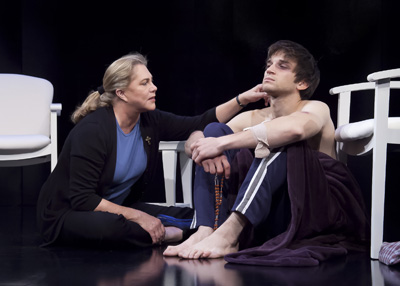
Sister Jamison Connolly (Kathleen Turner) and Cody Randall (Evan Jonigkeit) in HIGH, Photo credit: Lanny Nagler
High by Matthew Lombardo, Broadway National Tour, Cutler Majestic Theatre,
12/7/11-12/11/11, http://www.highonbroadway.com/about.html. Male nudity, mature language and themes
Reviewed by Becca Kidwell
(Boston, MA)
“When we were children, we used to think that when we were grown-up we would no longer be vulnerable. But to grow up is to accept vulnerability… To be alive is to be vulnerable.” Madeleine L’Engle
How do we find strength and salvation in the middle of pain and suffering? Everyone tries to hide from pain and many people try to protect others from the experience, but the inevitability of life is that human beings get hurt. We try to breathe and “be strong”–to not let anyone see that we are falling apart. What if we all admitted that we are not perfect–that there isn’t even one person out there that could be categorized by society’s standards as “normal”? High offers no escape from that darkness that lies inside of all of us and calls us to either face our flaws or recede further into our own shame. Continue reading

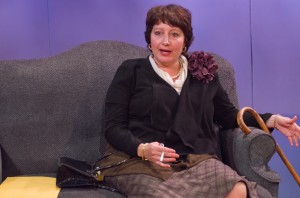

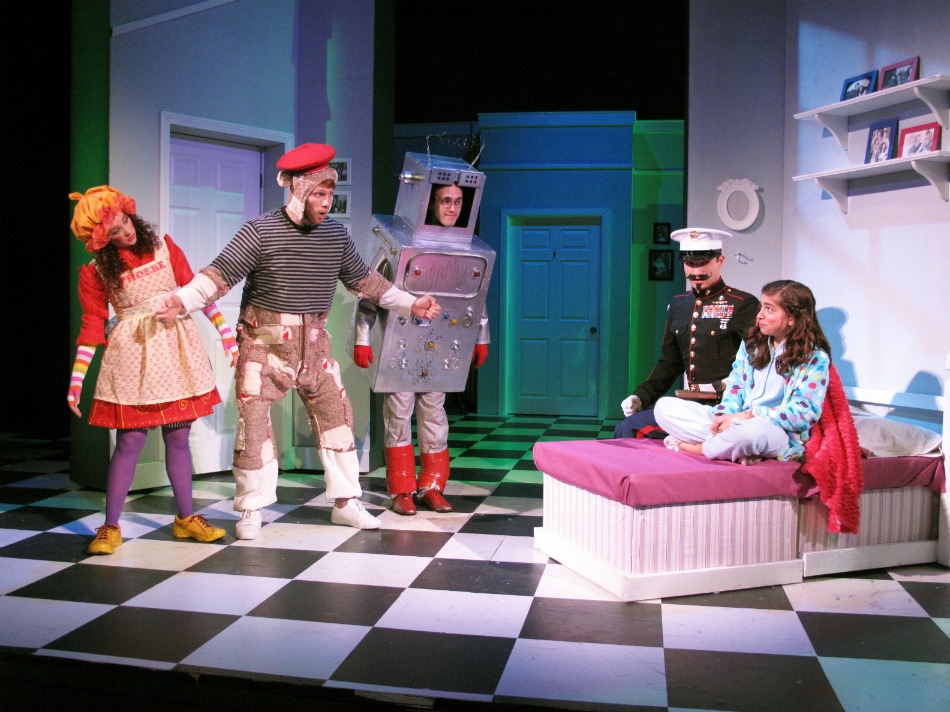
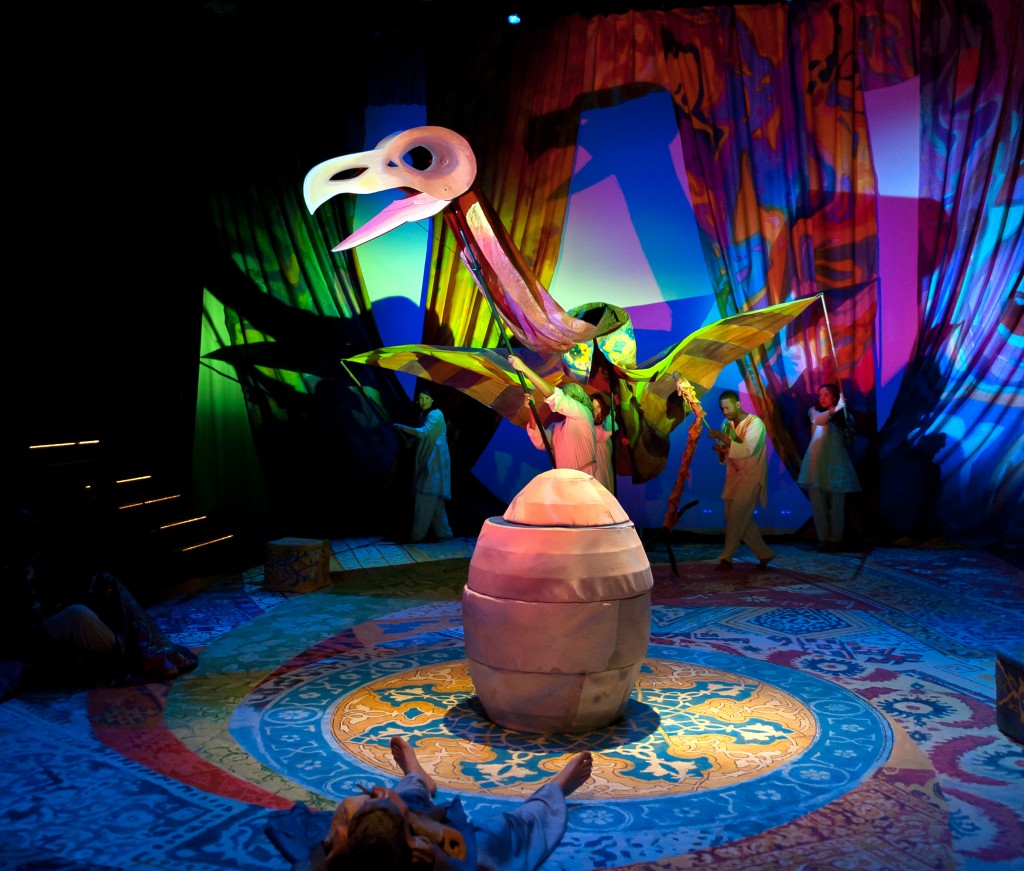

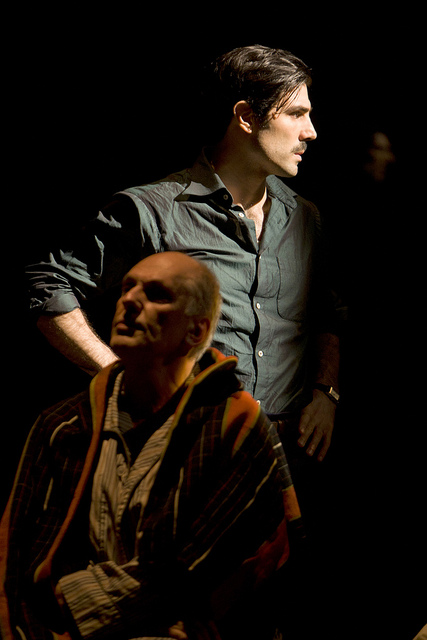
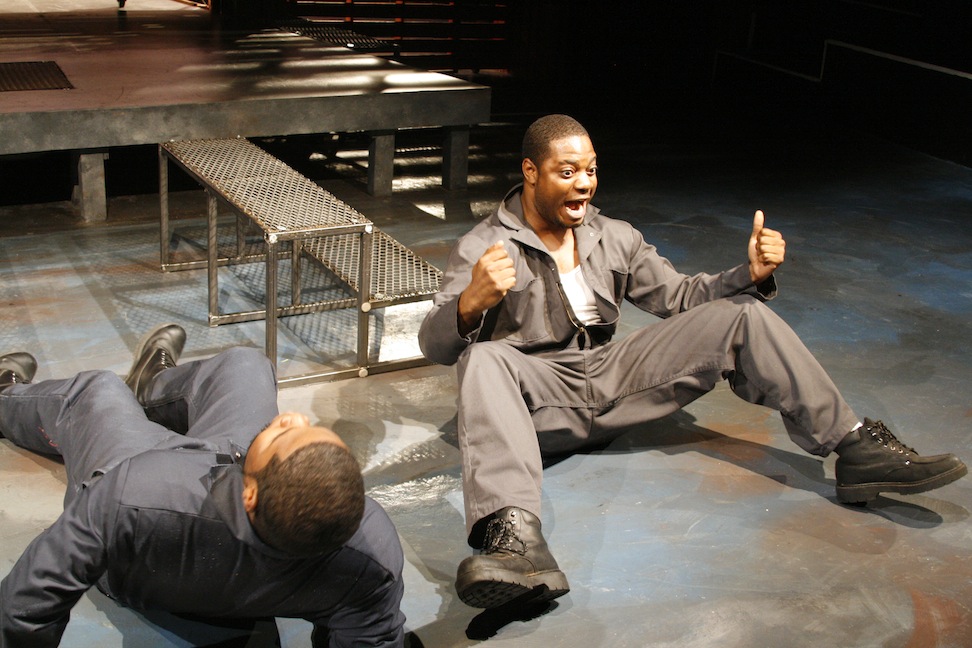
 Spring Awakening, music by Duncan Sheik, book and lyrics by Steven Sater,
Spring Awakening, music by Duncan Sheik, book and lyrics by Steven Sater,